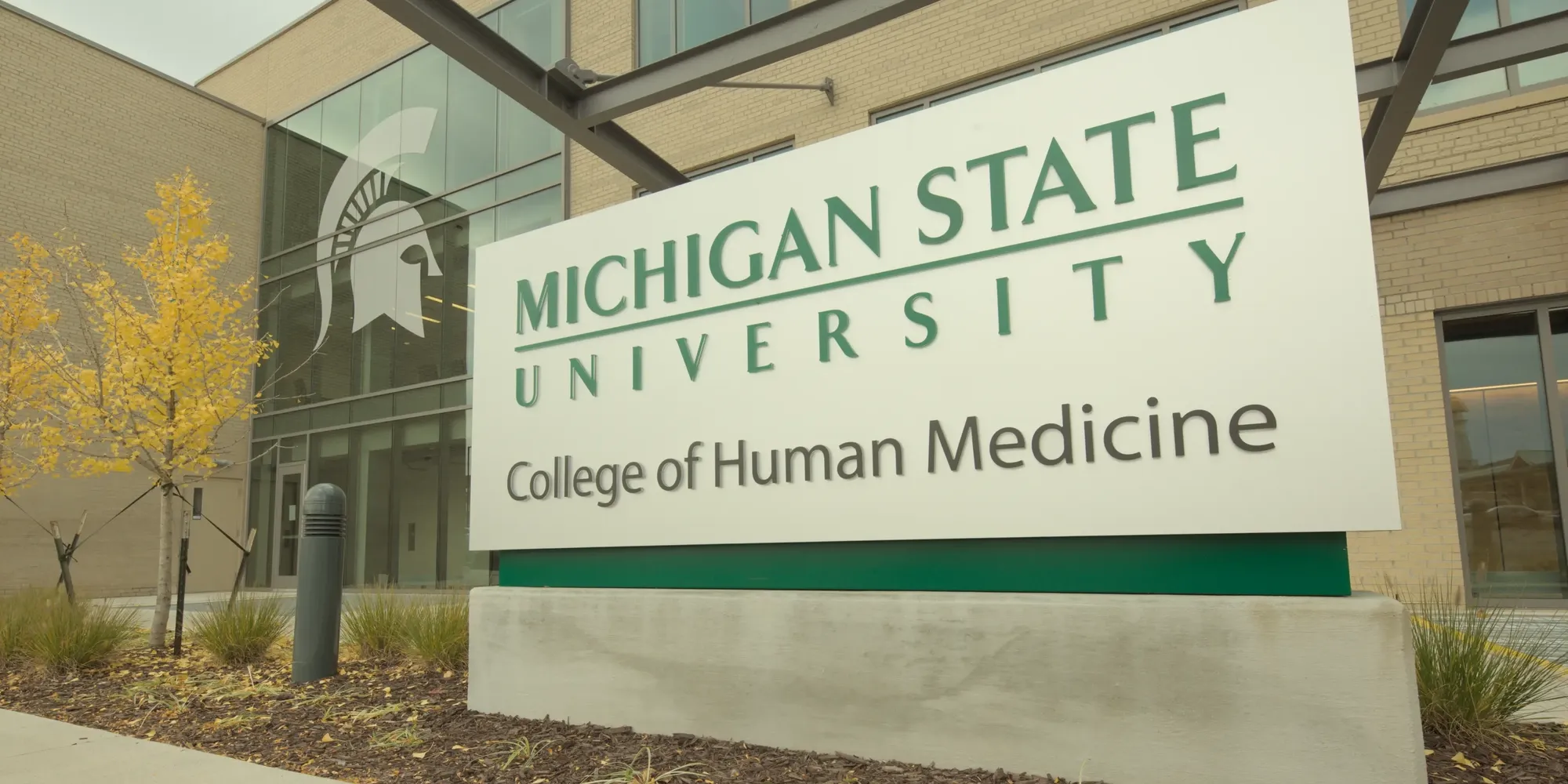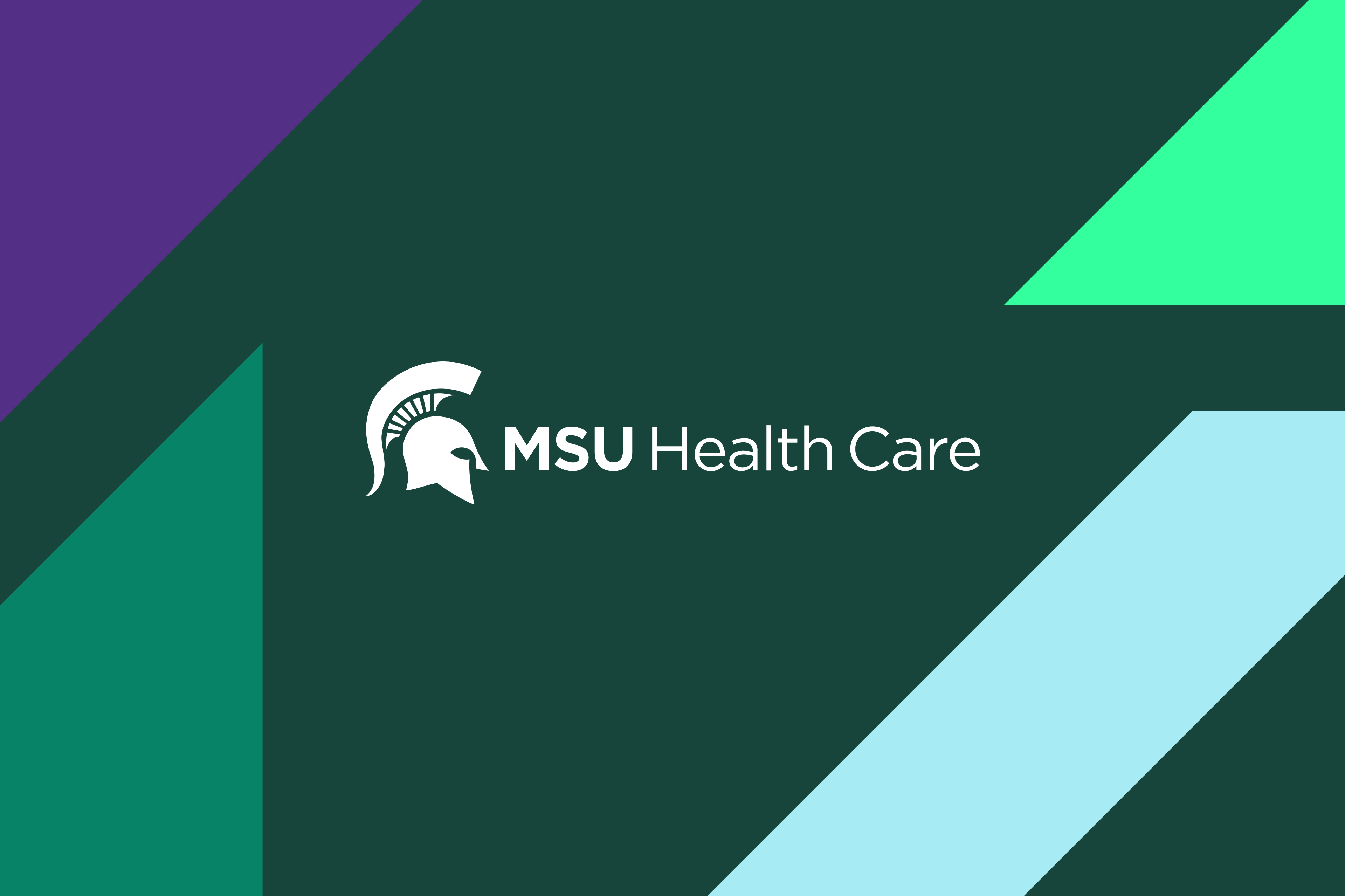Unfortunately for many, the place where they live is also a predictor of their life span, especially for rural residents. Nearly 2 million Michigan residents live in rural communities where there are significant barriers to health care resources such as long commutes to hospitals and clinics, a shrinking pool of providers and a lack of high-speed internet.

Prioritizing rural health equity is part of the sustainable health theme in MSU’s 2030 strategic plan and ensures that everyone has the chance to lead a healthy life, no matter where they live.
The university has long had a presence that reaches all areas of Michigan to create a national model for improving health and well-being in underserved communities, including rural areas of the state. The following are some examples of MSU’s commitment to helping residents, training the next generation of health care providers and providing specialty programs targeted at mental health.
The MSU College of Nursing is sharing stories of alumni and students who are providing care to some of Michigan’s most vulnerable rural communities. This is the first video in the upcoming series.
Access is crucial to managing chronic conditions, preventing disease and promoting overall well-being. The Michigan Center for Rural Health partners with the MSU College of Osteopathic Medicine on Project ECHO®, or Extension for Community Healthcare Outcomes.
Experts meet virtually with rural doctors and talk through challenges while providing updated information about specific areas of health care. This innovative model creates a community collaboration that strengthens preventative care in rural areas while helping local health care workers gain expertise they need to provide services that may not currently be available in their regions.
“We are a nonprofit State Office of Rural Health,” says John Barnas, executive director of the Michigan Center for Rural Health. “Right now, we have 21 grant programs underway to support everything from veterans in the Upper Peninsula to a regional response to the opioid and substance use disorder crisis in northern Michigan. Our efforts focus on what’s happening inside hospitals as well as within the communities. We are an affiliate of MSU and have enjoyed working closely with them since 1991 to improve family and community medicine.”

Another program aimed at northern Michigan communities is Eat My ABCs, organized by researchers in the MSU College of Nursing. Their goal is to increase children’s consumption of fruits and vegetables as well as improve household food security and overall healthy weight.
The recently completed project was implemented in 26 day care classes totaling more than 400 students. This 14-week program taught children about fruits and vegetables, including where they grow and the health benefits, as well as a mindful-eating food activity in which participants could see, feel, smell, taste and hear the food. Participating teachers received a four-hour, in-person training session with an MSU researcher and were given resources to use throughout the program.
“The program taught my kid not to be as picky because there were things that she had never tried and she would not try them,” says one parent. “Now, she’ll eat the different fruits or vegetables, and she’ll tell you what they are and if she likes them or not.”
Eat My ABCs also has resulted in an increase in average fruit intake among participants, a decrease in consumption of sweets and sugary drinks and nearly a 6% increase in participants with a healthy weight.

For patients of all ages, virtual visits are available through MSU Health Care for rural residents who have limited access to primary care providers. This program enables patients to receive regular check-ups, manage chronic conditions and address health concerns from the comfort of their home.
Similarly, the MSU Center for Bleeding and Clotting Disorders offers physical outreach clinics in lower Michigan and the Upper Peninsula, including clinics for the Amish population, as well as telemedicine clinics.
For more than 50 years, the Leadership in Rural Medicine programs in the MSU College of Human Medicine have been training future physicians in medically underserved rural communities and small towns across Michigan. The programs encourage and empower students to practice in these areas following graduation. In the Upper Peninsula, this includes the Rural Physician Program based in Marquette, and in Traverse City and Midland, it is known as the Rural Community Health Program.

Students gain experience caring for patients facing health issues prevalent in rural areas, such as higher rates of substance use disorders and chronic conditions. Students also receive training in many settings, from rural hospitals to small outpatient clinics to wilderness survival.
“As someone who was born and raised in rural northern Michigan, the Leadership in Rural Medicine program enabled me to care for the underserved patients that I've always held close to my heart,” says urogynecology fellow Hope Bauer. “The opportunity to be a part of the local community, while learning under the supervision of phenomenal physicians, was incredible.
“Once I complete my fellowship training, I will be joining a practice in western Michigan, where a large portion of the referral base is from rural, underserved locations,” Bauer adds. “The LRM program and my clinical experiences during that time helped me to become the surgeon that I am today.”

First- and second-year medical students in the MSU College of Osteopathic Medicine have the opportunity to help medically underserved communities while learning clinical skills through its Community Integrated Medicine. Students also provide patients with information on healthy lifestyles, cancer screenings, vaccinations and other local resources tailored to the unique needs of every patient and community.
In 2024, 44 of the College of Human Medicine graduates have participated in a Leadership in Rural Medicine program and 380 students were active in the College of Osteopathic Medicine’s program.
Another College of Nursing initiative will greatly increase the number of nurses in the state who care for survivors of sexual assault, with a focus on training in rural communities. The program includes in-person clinical experiences in East Lansing and ongoing remote learning and, by the time the program concludes in December 2024, it will have trained more than 200 nurses from across the state, including many in rural areas and the northern part of the state, as well as the Upper Peninsula.
The MSU College of Nursing is dedicated to increasing the number of mental health nurses in medically underserved areas by offering stipends to students who want to become psychiatric mental health nurse practitioners. Once they earn accreditation, students who receive the stipend must work for at least two years in a designated medically underserved area in Michigan, many of which are rural.
MIDOCs is a state-funded program to expand graduate medical education and residency positions in select specialties to recruit and retain physicians in underserved areas in Michigan.
The MSU College of Human Medicine is one of four participating medical schools along with Central Michigan University, Wayne State University and Western Michigan University. This year, the College of Human Medicine had six MIDOCs residents.
As part of the MIDOCs program, the MSU Department of Psychiatry created a rural track for psychiatry residents in both the colleges of osteopathic and human medicine who are interested in practicing in rural communities. Residents spend the first two years of the program studying in East Lansing and the last two in Marquette, where they learn and contribute to psychiatric education.
“At MSU, we believe that everyone in every corner of the state deserves access to quality health care because quality of life is so closely related to health,” says Aron Sousa, executive dean for health sciences. “There’s a reason that Spartan doctors, nurses and health care experts remain in Michigan after graduation: they are deeply committed to serving their communities and addressing unique local health and well-being needs.”
Learn more about MSU's statewide impact on the health of Michiganders through stories and data.
Get the latest updates on our programs and initiatives.


